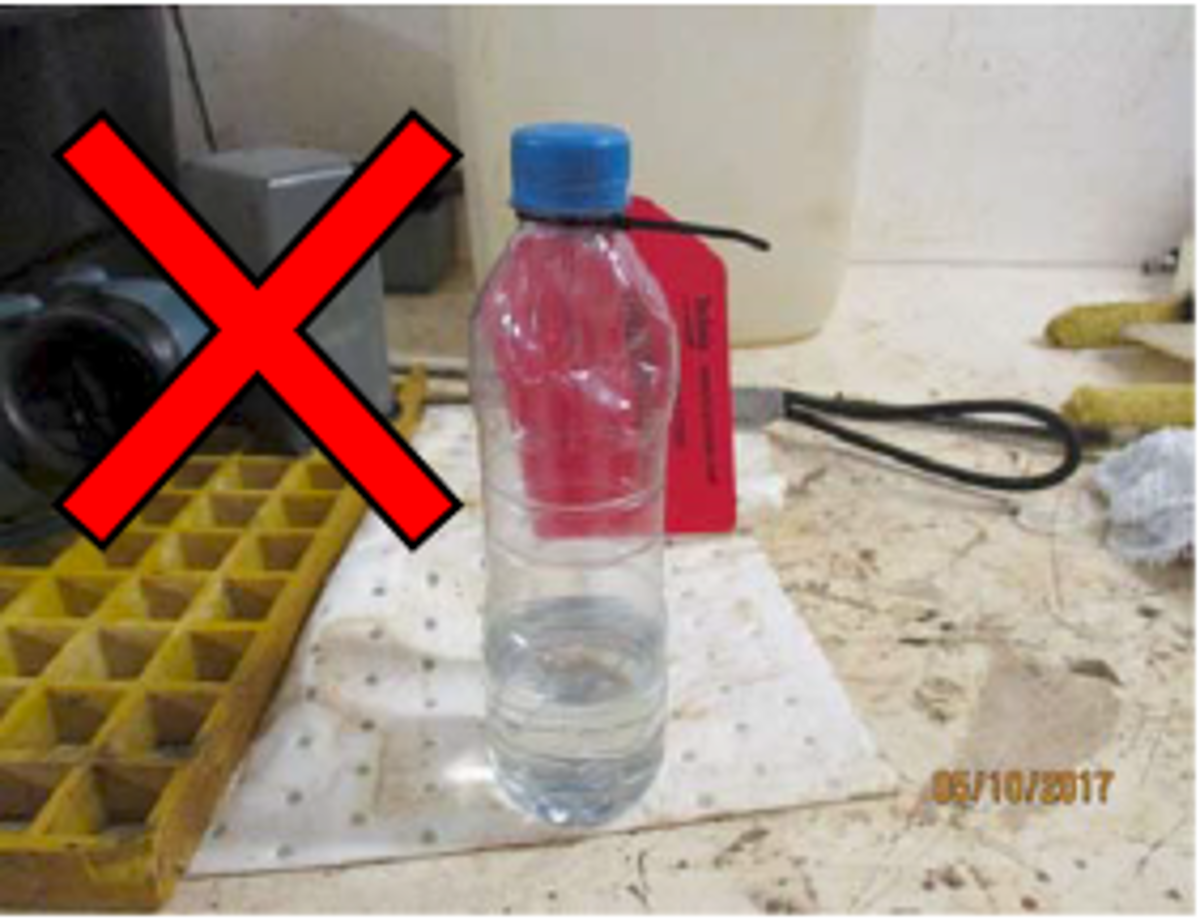Unlabelled containers: Chemicals stored in drinking water bottles
- Safety Flash
- Published on 15 November 2017
- Generated on 24 February 2026
- IMCA SF 29/17
- 2 minute read
Jump to:
One of our members has noted a trend of chemicals being decanted into unlabelled clear plastic water bottles of the sort commonly used for drinking water, and persons have assumed the chemicals to be water and taken a drink from the bottle.
What happened?
Our Member noted two recent cases; in one case, a person ingested a small amount of the chemical; in the other, a person took a sip from the bottle but did not swallow any chemical.
What went wrong? What were the causes?
- Poor hazard awareness.
- Inappropriate and inadequate management of chemicals, putting the health and safety of employees at risk.
Storing chemicals in unlabelled containers presents an avoidable risk, especially when chemicals are placed into containers such water bottles or soft drinks bottles. Accidental poisoning could result in serious harm.
If unidentified chemicals are accidentally ingested, medical staff may not be able to administer the appropriate treatment in a timely manner, with potentially fatal consequences.
Lessons learnt
- Chemicals are often ordered in bulk quantities and may arrive in containers that are too large or heavy for everyday use. Subsequently the chemicals may be transferred to smaller containers that are easier to manage.
- If it is necessary to decant chemicals from their original containers:
- Always decant the chemicals in the chemical storage area.
- Use a container in good condition, of type appropriate for the chemical.
- Ensure that both containers are clearly labelled. The labels should be clean and legible and should include:
- full product name
- manufacturer's name
- safety data sheet (SDS) reference.
- full product name
- Do not use bottles normally used for, or associated with, drinking water
- Wear the correct personal protective equipment including gloves and protective eyewear.
- Always decant the chemicals in the chemical storage area.
- Storage of chemicals should be in accordance with the SDS and in a designated and properly controlled storage location.
- Persons dealing with chemicals should be fully aware of relevant SDS information and local regulatory requirements such as The Control of Substances Hazardous to Health (COSHH (UK)).
Related safety flashes
-
IMCA SF 13/17
2 June 2017
-
-
IMCA SF 04/16
5 February 2016
IMCA Safety Flashes summarise key safety matters and incidents, allowing lessons to be more easily learnt for the benefit of the entire offshore industry.
The effectiveness of the IMCA Safety Flash system depends on the industry sharing information and so avoiding repeat incidents. Incidents are classified according to IOGP's Life Saving Rules.
All information is anonymised or sanitised, as appropriate, and warnings for graphic content included where possible.
IMCA makes every effort to ensure both the accuracy and reliability of the information shared, but is not be liable for any guidance and/or recommendation and/or statement herein contained.
The information contained in this document does not fulfil or replace any individual's or Member's legal, regulatory or other duties or obligations in respect of their operations. Individuals and Members remain solely responsible for the safe, lawful and proper conduct of their operations.
Share your safety incidents with IMCA online. Sign-up to receive Safety Flashes straight to your email.


